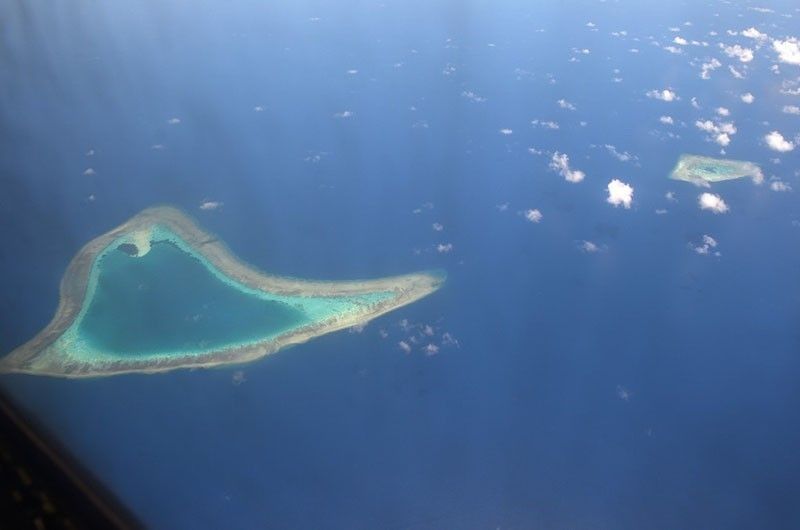Europe confronts China on the Indo-Pacific Region

On June 11, I made my first overseas trip in two and a half years. I boarded a Turkish Airline flight to Istanbul, and then to my final destination, Prague. It is in this old and scenic capital of the Czech Republic where the Prague High-Level Dialogue on the Indo-Pacific was held.
Organized by the Ministry of Foreign Affairs in tandem with some European Union (EU) institutions, this undertaking featured the EU’s Indo-Pacific Strategy as it deepens its engagement in the Indo-Pacific region with like-minded partners.
The two-day conference represented a multilateral venue where the EU, other European and like-minded partners (i.e., the U.S., Canada, Australia, New Zealand and the United Kingdom), as well as Indo-Pacific partner institutions such as the Association of Southeast Asian Nations (ASEAN), and the Quadrilateral Security Dialogue (QUAD) could discuss developments and current security issues in the Indo-Pacific region, and identify areas of cooperation.
My short discussion of how China’s comprehensive power and assertiveness have been unraveling the regional security architecture caught the attention of many European participants. European diplomats, academics, and business leaders are now oblivious to the EU’s earlier policy of “strategic autonomy” in the face of the U.S..-China strategic competition. This policy is based on the idea that Europe would not necessarily align itself with the U.S. as it should give full consideration to its relations with China especially in the realm of trade, investment and infrastructure development.
During the Trump administration, the rapid deterioration of EU-U.S. relations forced many EU member states to move closer to China. In fact, the upheavals in EU-US relations pushed some major European powers to put greater emphasis on Sino-European cooperation. Fortunately, the Biden Administration improved the U.S.’ economic and diplomatic relations with the EU and this provided opportunities for further cooperation between the two sides in many areas.
EU’s policy shift
The EU had been wary of the deeper and long-term implications of the escalating competition between Washington and Beijing as it attempted to remain neutral in this great powers’ contention. Nevertheless, despite the EU’s public pronouncement that it would maintain its strategic autonomy in the face of U.S.-China confrontation, it could not remove its view that China is Europe’s “systemic rival” in the 21st century.
This idea of a systemic rivalry with China stemmed from the rapid economic emergence of China that led to many EU member states becoming dependent on Chinese trade, investment, official development assistance and more recently, Beijing-sponsored and funded infrastructure projects. The growing dependence of many EU member states on China, and Beijing’s increasing political and economic influence all over the continent led to alarm bells ringing, first in Paris, then The Hague, and finally in the heart of the EU, Brussels.
The Russian invasion of Ukraine on February 24, the massive flow of Chinese economic assistance to bank-roll the sanctioned-ridden Russian economy, and Beijing’s refusal to condemn Moscow’s aggression against Kyiv brought out the latent competitive elements in EU-China relations.
The EU reflected on the wider implications of the war in Ukraine in the Indo-Pacific region in terms of the cohesion and durability of the China-Russia alignment, its challenge to the global security order, and the U.N. based international system as a whole. Eventually it accepted the notion that Russian military aggression against Ukraine and Moscow-Beijing military cooperation are systemic challenges to the rules-based international order, multilateralism, and human rights both in Europe and in the Indo-Pacific.
The EU agreed on the EU Strategic Compass and has started its implementation of this strategy that includes a strong Indo-Pacific element. This element emphasized the need for the EU to further develop partnerships and strengthen synergies with like-minded partners and relevant organizations in security and defense like the North Atlantic Organization (NATO), the U.S.-UK-Australia Strategic Partnership (AUKUS) and the QUAD.
The EU Presence in the Indo-Pacific
In the aftermath of the Russian invasion of Ukraine and in the face of a closer Beijing-Moscow strategic alignment, the EU does not any more consider Indo-Pacific security issues such as the South China Sea dispute, Taiwan Strait Crisis, and China’s maritime expansion as distant and abstract developments. For Brussels, the EU is currently in a unique position to shape an evolving and potentially perilous Indo-Pacific region.
European outreach draws on soft-and hard power instruments, and more recently, building strategic networks at institutional levels to enhance the continent’s power projection capabilities into the Indo-Pacific region. In the past, the EU assumed an inconsiderable role in politics and security agenda of the Indo-Pacific states. Recently, however, the EU has initiated new initiatives and partnerships that allow it to contribute in new ways and areas in the Indo-Pacific.
In 2012, the EU signed a Treaty of Amity and Cooperation with ASEAN, paving the way for greater European participation in ASEAN-led regional institutions. Japan, India, and Australia became central partners cooperating with the EU on providing platforms for member states to pursue initiative that create a substantial independent, European footprint in the security and military realms in the Indo-Pacific.
The EU aims to strengthen cooperation with strategic regional partners like the ASEAN and to develop bilateral tailor-made partnerships with like-minded countries and strategic partners in the Indo-Pacific.
The incoming Marcos administration is currently fine-tuning its foreign policy in the face of an evolving Indo-Pacific security architecture. It is imperative that it repairs Philippine-EU relations after a six-year hiatus under the outgoing Duterte administration.
Dr. Renato De Castro is a trustee and convenor of the National Security and East Asian Affairs Program of the think tank Stratbase ADR Institute.
- Latest

























